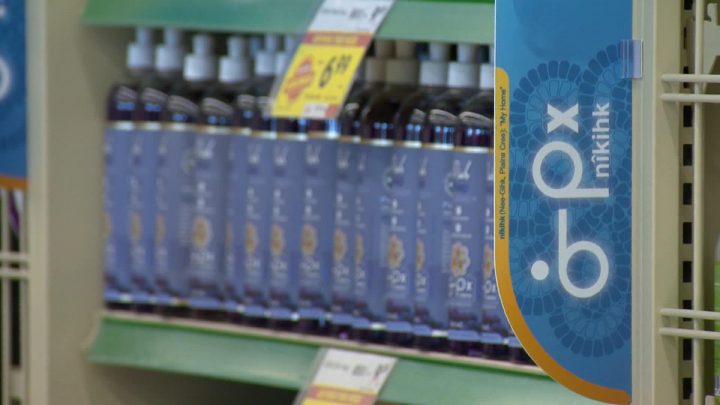As Saskatchewan enters Step 3 of the reopen roadmap on July 11, businesses are looking to rebound after a tough year-and-a-half.

However, some industry leaders and entrepreneurs think this should be a time for everyone to consider how to help all businesses and employees flourish.
Indigenous political and business groups have been calling for a levelling of the economic playing field for years and the discoveries of unmarked gravesites at residential schools have renewed calls for all aspects of inequality to be considered.
Weeks after the discovery of hundreds of remains in a mass grave site at the former Kamloops Indian Residential School, the president and CEO of a Saskatoon business group put out a call for a change to the status quo.
Alex Fallon from the Saskatoon Regional Economic Development Authority (SREDA) penned an essay which said whenever discussions around the proposed downtown entertainment district arise, media outlets are quick to cover it, but there is another serious issue that isn’t being discussed — economic racism.
It went on to say that the Indigenous population is about 16 per cent of Saskatchewan’s total population but an Indigenous person is nearly twice as likely to be unemployed compared to the average Saskatchewanian.

He said as governments and businesses are looking to invest to help bring the economy out of the pandemic, people have to make a conscious decision on how to truly grow Saskatoon’s economy and that means incorporating everyone and not just in entry-level jobs.
“Ensuring we have people from all races involved in business on management teams, leadership positions and on boards and making sure they’re well represented across organizations,” Fallon told Global News.
It’s a topic the Saskatchewan Indigenous Economic Development Network is familiar with.
Their founder and chairperson said he’s spoken about this for several years and has seen differences in economies in Saskatchewan compared to other parts of the country and continent where our economies are more fragmented.
“There is only one colour in business. The colour of money,” Milton Tootoosis said, adding that many non-Indigenous customers don’t shop at Indigenous businesses thinking they are only for Indigenous people and vice versa.
He noted there are several barriers that make starting a business a little harder for Indigenous entrepreneurs like education levels and lack of access to capital.
“Any business, big or small, whether you’re online or have a brick and mortar business, it costs money – it’s a calculated risk,” Tootoosis said.
One company that has been able to break that barrier is nîkihk, a business that makes environmentally-friendly cleaning solutions and was started by the Battlefords Agency Tribal Chiefs (BATC).
On July 5, business and Indigenous leaders gathered at a Saskatoon Sobeys grocery store to announce the company’s products would be sold there.
“To get into Sobey’s chains is a big thing. It’s a competitive world now we understand, but we found the Indigenous niche,” nîkihk president Neil Sasakamoose said.
The push to get the products in the store came after the store owner received a gift package of nîkihk products after receiving a COVID-19 shot from a clinic run by an Indigenous agency.
The brand was launched after people in communities under the BATC couldn’t find or purchase cleaning supplies at the start of the pandemic, so they decided to make their own which in turn was a job creator for Indigenous people in Treaty 4 territory.
The word nîkihk is Plains Cree and translates to my home, something the company wanted to emphasize as a product that is safe to use in any home.
Its website said it has supplied 25,000 cleaning kits across the province.



Comments